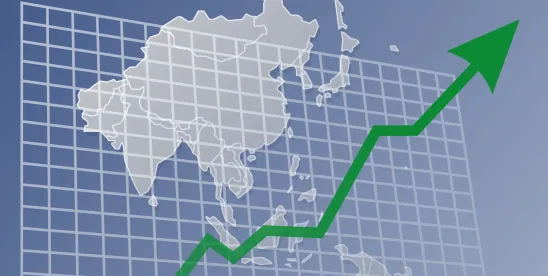The Asia-Pacific region is experiencing rapid economic growth with a strong reliance on foreign direct investment, focusing on easing business travel immigration rules and increasing openness to tourism. Societal challenges include gender roles and increasing environmental awareness.
Taiwan
BACKGROUND
The Taiwanese government underwent substantial change in the 1990s up to 2005, when the constitution was amended to make it more relevant to the sovereign territory’s contemporary status and serve as a foundation for democratic governance. The central government contains the presidency and five major branches (yuans). The president is directly elected, serves a four-year term and may be reelected for one additional term. The president is empowered to appoint the heads of the four branches of the government, and so the ruling/political party that occupies the presidential office plays a key role in the functioning of the government.
Currently, the government operates as a multiparty democracy with two major parties, the Kuomintang (KMT or Nationalist Party) and the Democratic Progressive Party (DPP). The KMT held the presidency in Taiwan for more than five decades before the DPP won the 2000 and 2004 presidential elections. The KMT returned to power briefly in 2008 and 2012, but the DPP has since won the 2016 and 2020 presidential elections and sought to stay in power in 2024 to achieve three consecutive terms.
On Jan. 13, Taiwan held elections for its presidency and 113-seat legislature, the Legislative Yuan. Lai Ching-te, also known as William Lai (DPP) ran against Hou Yu-ih (KMT). This was the eighth direct election for the president of Taiwan. Previously, the position was indirectly elected by the National Assembly until 1996. This election and government actions going forward will determine the trajectory of the self-ruled democracy — the first place ever to free itself from Western colonial rule.
OUTLOOK
In the January 2024 election, Taiwan elected Lai as its new president, and he was inaugurated on May 20. The DPP lost its outright majority in the Legislative Yuan however, as the KMT gained 52 of the 113 seats, while the DPP secured only 51. This was the first time since 2004 that no party won an outright majority.
Lai is expected to build on domestic reforms, despite political gridlock. Lai’s DPP has lost the majority in the legislature, making it hard for him to push through legislation. Consequently, the smaller Taiwan People’s Party (TPP) will play a crucial role in forming a coalition to lead the legislature. Lai will need to build on efforts to strengthen ties with the U.S. and prioritize migrant issues while keeping the economy running strong.
RECENT IMMIGRATION CHANGES
The Taiwanese government announced several changes to immigration policy recently and just expanded their visa-free entry program for travelers from Brunei, the Philippines and Thailand.
The Taiwanese government intends to revise immigration policies to benefit certain resident visa holders and visitor visa holders to reduce difficulties in applying for Alien Resident Certificates or extend visitor visas. Alternatively, fine increases for overstay and a greater maximum entry ban demonstrate the government’s attempt to deter overstays and illegal work — priorities for the new administration that could have further impacts on immigration policy in the future.
South Korea
BACKGROUND
The Republic of Korea’s Constitution adopts liberal democracy as its basic principle of governance. The National Assembly is the unicameral national legislature, and its members serve four-year terms. Executive power is vested in the president, who is elected by the people and serves five-year terms without reelection capability. Current President Yoon Suk Yeol of the People Power Party took office in May 2022.
Legislative elections were held in April 2024 for all 300 members of the National Assembly. The two largest parties are the liberal Democratic Party and the conservative People Power Party. The election was a midterm referendum for the Yoon administration as it approached its third year. His hope was for his party to regain a parliamentary majority. Yoon narrowly won the 2022 presidential election and has struggled with low approval ratings. He now faced the possibility of spending the next three years of his single-term presidency as a lame duck.
OUTLOOK
South Korea’s Democratic Party won a landslide victory in the country’s parliamentary elections, giving liberals an extended opposition control of parliament and putting Yoon and his conservative party in a challenging position for the three remaining years of his term. The Democratic Party already held majority control but won 175 seats in the 300-member single-chamber parliament, and the conservative People Power Party won 108 seats, becoming an even smaller minority. Voter turnout was the highest in 32 years for a parliamentary election, and the outcome has been interpreted as a strong judgment on Yoon and the policies his administration has prioritized in the last two years since taking office. The People Power Party will now have to cooperate with the Democratic Party and its leader, Lee Jae-myung.
Yoon has described South Korea as a “global pivotal state,” with a growing number of immigrants in the country and a need to develop immigrant policies that fit its status. His administration has had the difficult task of addressing a population crisis consisting of low birth rates and an aging population.
The administration is still trying to come up with a cohesive approach concerning immigration — 2.5 million foreign nationals currently reside in the nation, which is roughly 5% of the total population. One of Yoon’s campaign promises was to create a separate immigration agency under the Ministry of Justice to implement unified immigration policies that balance workforce and immigration that are sector-specific and meet growing labor demands. The new agency would also be tasked with other immigration policy initiatives, such as strengthening border controls and supporting immigrant integration. The creation of a Ministry of Population Strategy Planning has also been proposed as an alternative that would take over immigration-related policies from the justice ministry and handle the creation of new comprehensive immigration policies. The planned launch of these new immigration agencies has stalled, and lawmakers did not pass the People Power Party proposal for a new agency within the Government Organization Act before the conclusion of the previous National Assembly session in May.
Now that the members have been elected in the 2024 legislative election and assumed office, the 22nd National Assembly is currently in session and discussions surrounding a new immigration agency may continue. The majority control that the Democratic Party now holds as a result of the 2024 legislative election will have a direct impact on Yoon and the People Power Party’s ability to enact important immigration reforms.
RECENT IMMIGRATION NEWS
South Korea recently launched a digital nomad visa for overseas remote workers that allows some foreign residents to stay in South Korea for up to two years while maintaining jobs in their country of origin. Considered a “workation” visa, the digital nomad visa allows qualified foreign employees to reside in various regions of South Korea and is designed to revitalize their economy. However, workers are restricted from working for South Korean employers during their stay unless they obtain a separate work visa. This new category provides an immigration pathway for remote workers that was previously not available and highlights a continuing trend among various countries around the world offering new digital nomad visas to attract greater foreign talent and skilled professionals.
South Korean authorities continue to promote policies that aim to increase tourism by simplifying entry processes for foreign nationals wanting to travel to the country as well as create initiatives designed to strengthen bilateral relations with allied nations and improve labor market access for younger workers. Last year, the government announced that travelers from 22 countries, including Australia, Canada, Japan, Singapore and many EU countries, no longer need to apply for Korean Electronic Travel Authorization (K-ETA) before entering the country. This policy is in effect until Dec. 31. K-ETA is an online electronic travel authorization that visa-free foreign visitors need to obtain for tourism, visiting relatives, participating in events or meetings and business purposes other than profitable activities. A bilaterial agreement with Canada was also announced for a new Youth Mobility Agreement last year. This initiative allows certain Canadian and South Korean nationals to live and work in the two countries for up to 12 months through certain immigration categories to increase work and travel opportunities.
Recent immigration news
India
- Prime Minister Narendra Modi declared victory in India’s general election for his Hindu nationalist Bharatiya Janata Party. They defeated the main opposition, the Indian National Developmental Inclusive Alliance (INDIA), which was an alliance of more than two dozen regional parties.
- General elections were held in seven phases, ending in June, to elect all 543 members of the Lok Sabha, also known as the House of the People (lower house of India’s bicameral parliament).
- Modi confirmed the support of 293 MPs, but he will need the support of other parties to form a coalition. It is the first time he will have to head this type of coalition government in his tenure as PM. The Telugu Desam Party of Andhra Pradesh and Janata Dal (United) of Bihar will be his two main allies.
- Modi had hoped for a landslide victory but still claims a mandate to move forward with his agenda, even though his party lost seats to a stronger-than-expected opposition.
- India has one of the fastest-growing economies in the world and continues its rise as an emerging global power.
China
- The 14th National People’s Congress (NPC) is currently in its electoral term and is scheduled to continue until March 2028.
- Elections for the new NPC were held from October 2022 to February 2023.
Japan
- Japan is considered a constitutional monarchy, and Japan’s governing party, the Liberal Democratic Party, recently lost all three seats in parliamentary by-elections in a major setback for Prime Minister Fumio Kishida, who is seeking reelection as his party’s leader in October 2025.
- The liberal-leaning main opposition Constitutional Democratic Party clinched all three seats in Shimane, Nagasaki and Tokyo.
- Kishida has said he will attempt to “regain the people’s trust,” has denied he will step down or call for a snap election and vowed to tackle the economic issues Japan currently faces.




 />i
/>i
